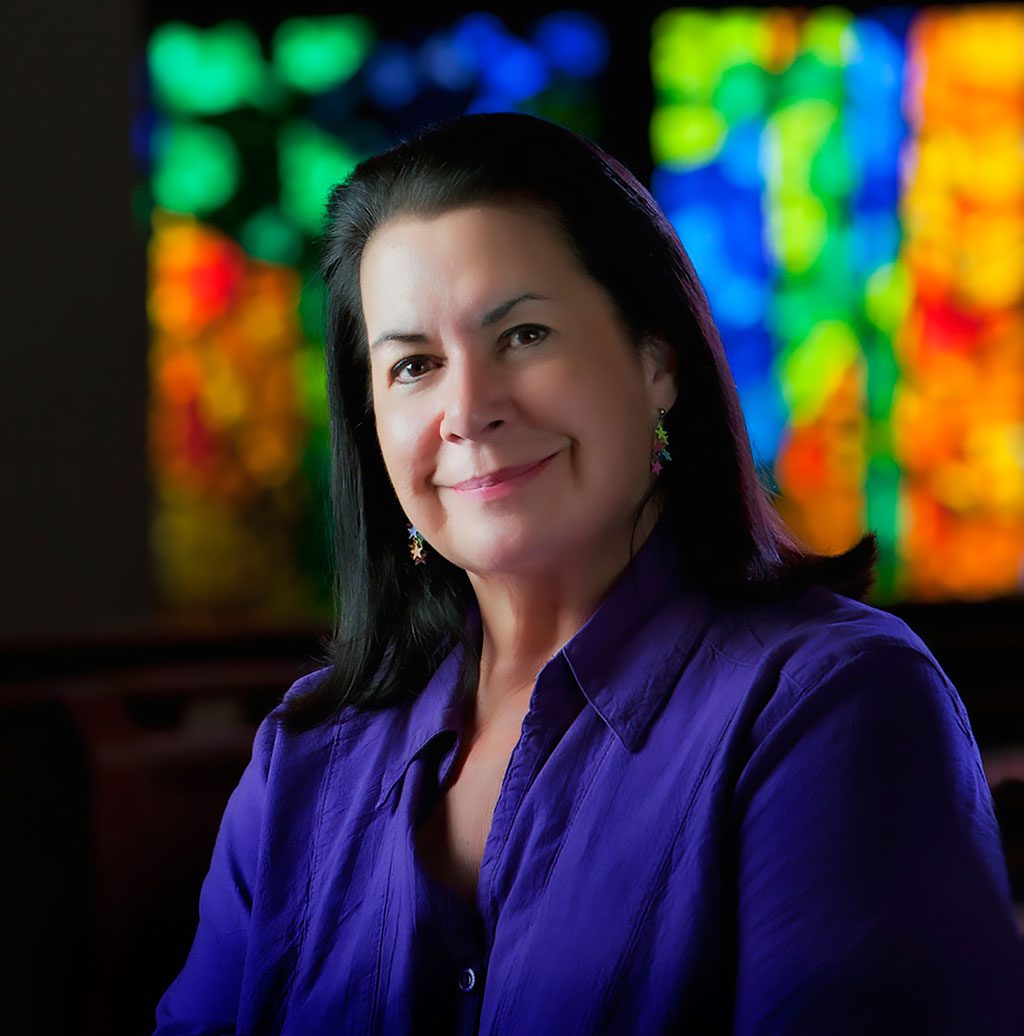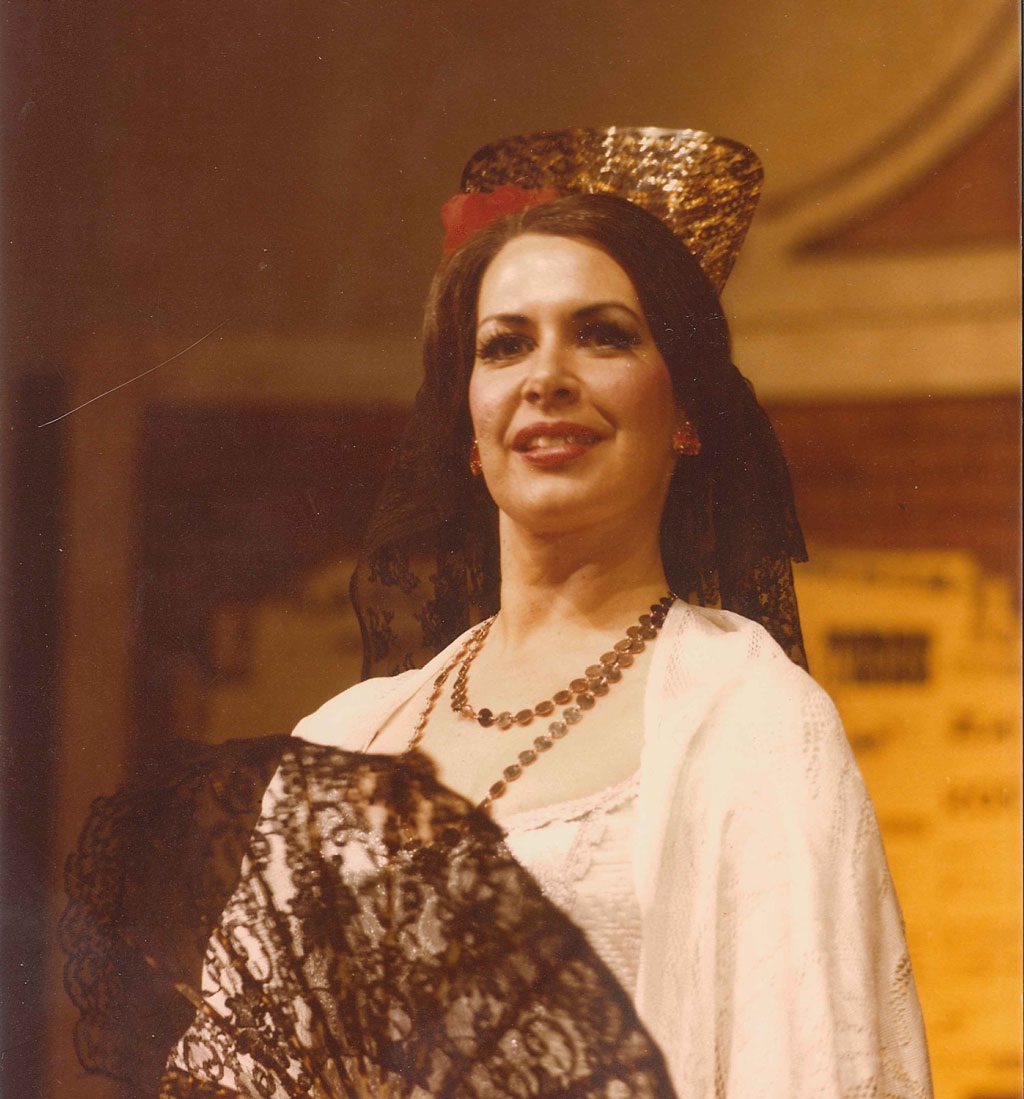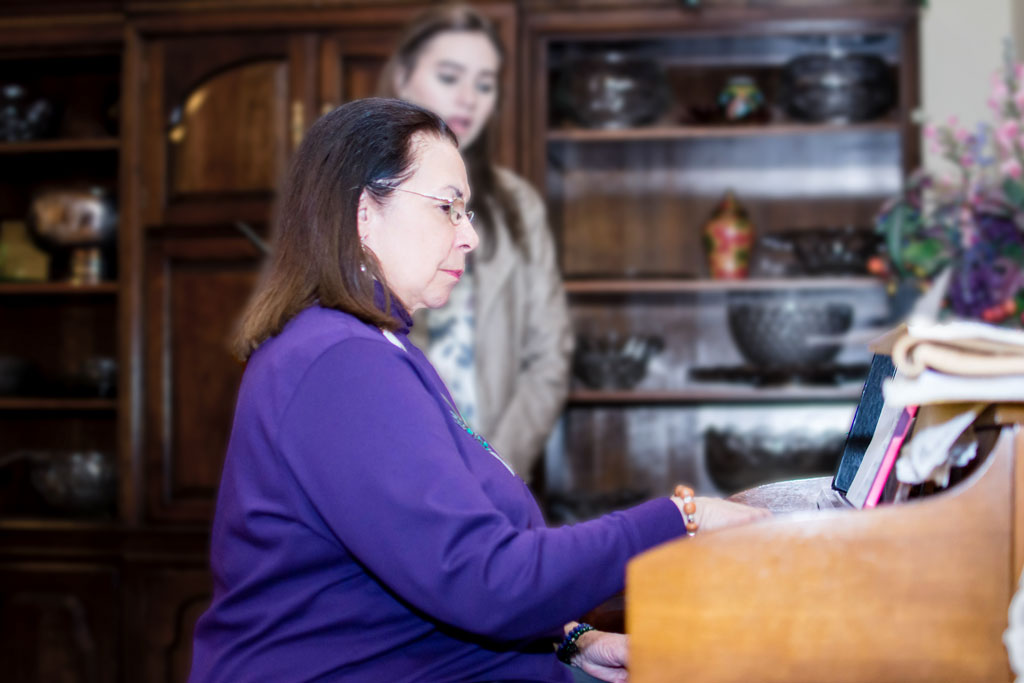
When acclaimed opera singer Barbara McAlister graduated from Oklahoma City University with a degree in vocal performance, she jumped into working summer theater. After that, she moved to Hollywood for nine years.
The Cherokee mezzo-soprano from Muskogee didn’t didn’t take a break from her art – singing – for a reason.
“Leave yourself with no way of retreating from what you want to do,” she says. “I wanted to sing, so I packed up my little Mustang, and I went.”
It’s no surprise that music was central to McAlister’s identity – she grew up in a musical home. Her mother played piano, and her father sang bass in a German church choir.
However, McAlister had to overcome a challenge before she could get anywhere.
“I was a shy human being,” she says. “So when you go from that to being on stage – it’s pretty huge.”
The time in Hollywood gave rise to teaching, painting, writing prose, and singing across the world. In 1974, McAlister won the Loren L. Zachary national vocal contest for opera singers ages 21-35; the prizewinnings paid for a trip to Europe and launched an international string of performances.

Singing dramatic mezzo, McAlister ended up performing in Germany, France and Hong Kong. She took roles such as the stricken widow named Mrs. Nolan in Gian Carlo Menotti’s The Medium and fortune teller Ulrica in Giuseppe Verdi’s A Masked Ball.
“It was repertory opera,” McAlister says, “which means I sang every day for 10 years in Germany.”
Performances usually involved “three and a half to five hours of singing with no microphone,” she says.
McAlister had to learn the meaning behind each opera’s lyrics, too, which involved singing in several languages. The transition between each isn’t as difficult as one might think, she says.
“All of singing is based in Italian,” McAlister says. “Every language has these vowels that you focus on. Singing in Russian, you still sing with these vowels.”
McAlister’s work can be seen in all sorts of venues, from opera stages to miniature paintings of Cherokee girls in traditional garb.
Those miniature paintings helped support her when she came back to Muskogee to visit during her years in Hollywood, McAlister says.
“I’d be home for a month and make a couple of thousand dollars selling these,” she says. “I loved it. It’s something you could sit and rest and make money with.”
Someone might even find some of her work on stitched pillows, McAlister says.
“Reynolds Yarn bought art from me and [fellow native artist] Jerome Tiger,” she says. “He bought four of my paintings and reproduced the design for his pillows.”
People still send her eBay listings when the pillows show up on the auction site – and one person found one of the original canvases.
Regardless, vocal art takes up most of McAlister’s time these days as a voice teacher and as a fine arts instructor for the Cherokee Nation.
“Teaching and singing – those are my passions,” she says.
McAlister describes her approach to singing – acquired from the late Lee Sweetland, her vocal coach in Los Angeles – as holistic.
“It’s like you’re talking, right? It’s speech-based,” she says. “It’s not about all this head-voice and chest-voice stuff.”
Central tenets of the technique deem “breath support and diction” as two important components, McAlister says.
“The third thing is – you bite into your vowels,” she says.

On more than one occasion she’s put her singing and training to use in creating Native American-centric work, McAlister says.
She has performed multiple times at the National Museum of the American Indian at the Smithsonian Institution, both with an original song called “Night Star” and two Lakota Sioux songs.
McAlister’s idea for a Native American musical also served as the genesis for a work about the Trail of Tears.
“It was my concept,” she said, “and I pitched it to the composer [Lindor Chlarsson], who found an author named Robert Conley.”
Conley’s subsequent novel, Mountain Windsong, inspired the musical by the same name, with McAlister creating the role of Qualla, mother of the story’s protagonist, Oconeechee.
Following a 2009 move back to Muskogee, McAlister’s days are now mainly filled with her love for teaching. Before working with the Cherokee Nation, McAlister taught at Northeastern State University in Tahlequah and Bacone College in Muskogee. She also accepts private students.
McAlister says she wants her students to take her instruction and advance themselves.
“I think we have to look toward the future,” McAlister says. “I want to help young people get scholarships through their voices. There’s so much talent out there.”






















